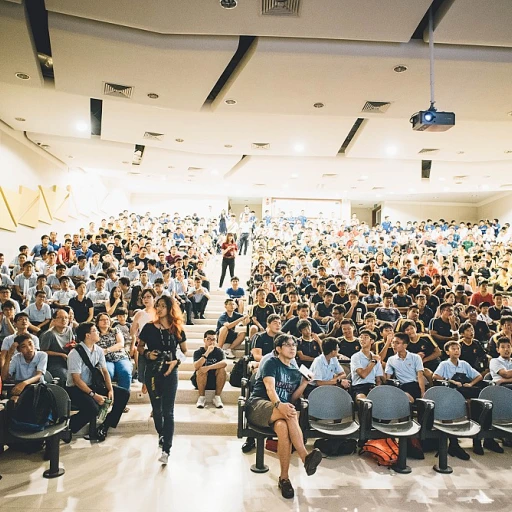
Understanding Time Off Bidding
Decoding the Time Off Bidding Process
In the intricate web of human resources, managing staff leave can be quite complex. A critical part of this involves time off bidding, a process that allows employees to request vacation slots in a structured manner. This often aligns with employee seniority, ensuring fairness in vacation planning. Time bidding is particularly useful in workplaces with high-demand periods, such as healthcare facilities or enterprises engaged in seasonal work. It allows for optimal staff commitment and reduces potential disruption to operations. As employees bid for annual vacation slots, HR professionals must balance the needs of their workplace with the personal time requests of their staff. Bid positions, like those at healthcare organizations such as Kaiser, require careful planning to ensure patient care is not compromised. This often results in a delicate dance of scheduling, taking into account employee seniority and available staffing. The efficiency of this process can be greatly enhanced with the use of AI. As we further explore, AI-driven systems can analyze and streamline the time bidding process, offering a more balanced and unbiased approach. Such systems take into account historical data and employee preferences to create a seamless experience for both employees and HR staff. The integration of AI in time off bidding can be transformative, promised to provide equitable vacation planning that respects both employee needs and organizational requirements. For a deep dive into managing unique leave scenarios, exploring [efficient intermittent leave applications with AI] (https://www.aihr-institute.com/blog/streamlining-intermittent-fmla-call-in-procedures-with-ai) could be insightful.The Role of AI in Time Off Bidding
Leveraging AI for Streamlined Decision-Making
The incorporation of artificial intelligence in time off bidding is reshaping how organizations manage staffing and employee vacations. The use of AI-driven systems helps in facilitating more efficient decision-making processes when it comes to bidding for vacation time. By assessing individual employee preferences alongside the organization’s staffing requirements, AI can offer balanced solutions that satisfy both parties. This technological approach not only prioritizes fairness but also seeks to maximize operational efficiency in managing HR meetings with artificial intelligence.
AI enables the automation of time bidding, where algorithms can evaluate several factors like employee seniority, current staffing levels, and even historical vacation patterns to allocate vacation days optimally. This is particularly beneficial for organizations like healthcare facilities, which need to maintain robust staffing levels at all times. By automating this historically cumbersome process, AI minimizes the administrative burden on HR departments and reduces errors or biases that can arise in manual systems.
Efficiency Plus Engagement
What stands out about AI's role in time off bidding is not just the passing efficiency, but the increased employee satisfaction. When employees know that a data-driven system objectively manages their vacation bids, it augmenting overall commitment and morale. Employees can confidently bid for vacation time, assured by the transparency and fairness embedded in the AI algorithms.
The experience extended by AI goes beyond mere calculations. It gives employees a more interactive role in vacation planning, allowing them to understand and impact the bidding decisions with their preferences. All these elements contribute to a comprehensive view of AI's potential to redefine vacation management practices.
Benefits of AI-Driven Time Off Bidding
Reaping the Benefits of AI in Time Off Bidding
The integration of AI into the time off bidding process brings numerous advantages that streamline operations for both organizations and employees. With AI-driven systems, the efficiency of handling bids markedly improves, enhancing the overall experience. First and foremost, AI can handle vast amounts of data quickly, making the time bidding process more accurate and reliable. It also facilitates the fair allocation of time off, taking into account employee seniority and staffing needs, ensuring that operations remain smooth. For instance, AI-based applications can sift through requests and schedule annual vacation time more effectively by analyzing patterns in bid positions and employee preferences. Moreover, AI offers a transparent view of the entire vacation planning process. Employees gain confidence that their bids receive fair consideration based on a systematic and unbiased approach. AI applications can predict staffing needs, ensuring care commitments aren't compromised and that crucial positions remain staffed during peak vacation periods. Another significant benefit is the capability for employees to manage and monitor their own time off requests. With user-friendly web-based interfaces, staff members can bid for time off from any location, making the whole process seamless and convenient. This enhances employee satisfaction and engagement, as they feel more in control of their work-life balance. Implementing AI in time off bidding ultimately leads to better resource allocation and increased staff commitment. By optimizing the process, companies can maintain coverage during critical times, allowing for efficient annual vacation management. For organizations considering the next steps in enhancing HR practices, AI can transform HR reporting processes, driving better decision-making capabilities and overall efficiency.Challenges in Implementing AI for Time Off Bidding
Hurdles in Adopting AI for Leave Bidding
Incorporating artificial intelligence into the process of time off bidding can be a formidable challenge for many organizations. Although the potential benefits are significant, from streamlining vacation planning to enhancing staff management, transitioning to AI-driven systems is not without its hurdles. One of the primary challenges lies in adjusting existing workflows. The traditional method of handling annual vacation requests often relies heavily on personal and manual input. Switching to a web-based system that automates bidding processes requires a significant shift in how employee leave is managed. Organizations must ensure that both the staff and HR professionals are adequately trained to use these AI-based applications, which can be a time-consuming process. Another concern is managing employee expectations and buy-in. Transitioning to an automated system for time bidding might be met with resistance from employees who are accustomed to the personal touch of human resource management. Ensuring that all staff members understand the benefits of this new system, such as fairer allocation of bid positions and enhanced transparency for employee seniority, can mitigate these concerns. Data privacy is also a central issue when implementing AI-driven time bidding systems. Protecting sensitive employee information while ensuring that the system operates smoothly requires a strong commitment to data security. This is paramount, especially when dealing with medical positions or care-based roles that may require special consideration in terms of staffing commitments and coverage. Lastly, the integration of AI into existing HR systems can introduce technical challenges. Ensuring that all new systems mesh with the company's current IT infrastructure requires careful planning and a commitment to a robust IT support structure. Overcoming these challenges will ensure a smoother transition and set the stage for more sophisticated time management processes that benefit both employees and the organization as a whole.Case Studies: Successful AI Implementation
Real-World Applications of AI in Time Off Bidding
In the evolving landscape of human resources, AI-driven time off bidding systems have been making significant strides. Organizations are increasingly turning to these advanced solutions to streamline their vacation planning processes and enhance employee satisfaction. Let's delve into some real-world examples where AI has successfully transformed time off bidding.
Healthcare Sector: Streamlining Staffing and Vacation Planning
In the healthcare industry, efficient staffing is crucial to ensure patient care is not compromised. A notable example is a large healthcare provider that implemented an AI-based application to manage their time off bidding process. By leveraging AI, they were able to consider employee seniority, bid positions, and staffing needs simultaneously. This not only optimized the allocation of vacation days but also maintained a balanced staff presence, ensuring that care positions were adequately filled at all times.
Corporate Environment: Enhancing Employee Experience
In a corporate setting, a multinational company adopted AI-driven time bidding to improve their annual vacation planning. The system allowed employees to bid for vacation days based on their preferences and seniority. The AI processed these bids, taking into account the company's operational requirements and employee commitments. As a result, employees experienced a fairer and more transparent process, leading to increased satisfaction and a more engaged workforce.
Retail Industry: Balancing Work and Employee Needs
Retail businesses often face challenges in balancing employee vacation requests with peak shopping periods. A leading retail chain utilized AI to manage their time off bidding, ensuring that employee requests were met without compromising on staffing levels during critical times. The AI system analyzed historical data and employee preferences, allowing for a more equitable distribution of vacation days. This approach not only improved employee morale but also ensured that the business could meet customer demands effectively.
These case studies highlight the transformative potential of AI in time off bidding. By integrating AI, organizations can achieve a more efficient and employee-friendly process, ultimately leading to a more harmonious workplace.













